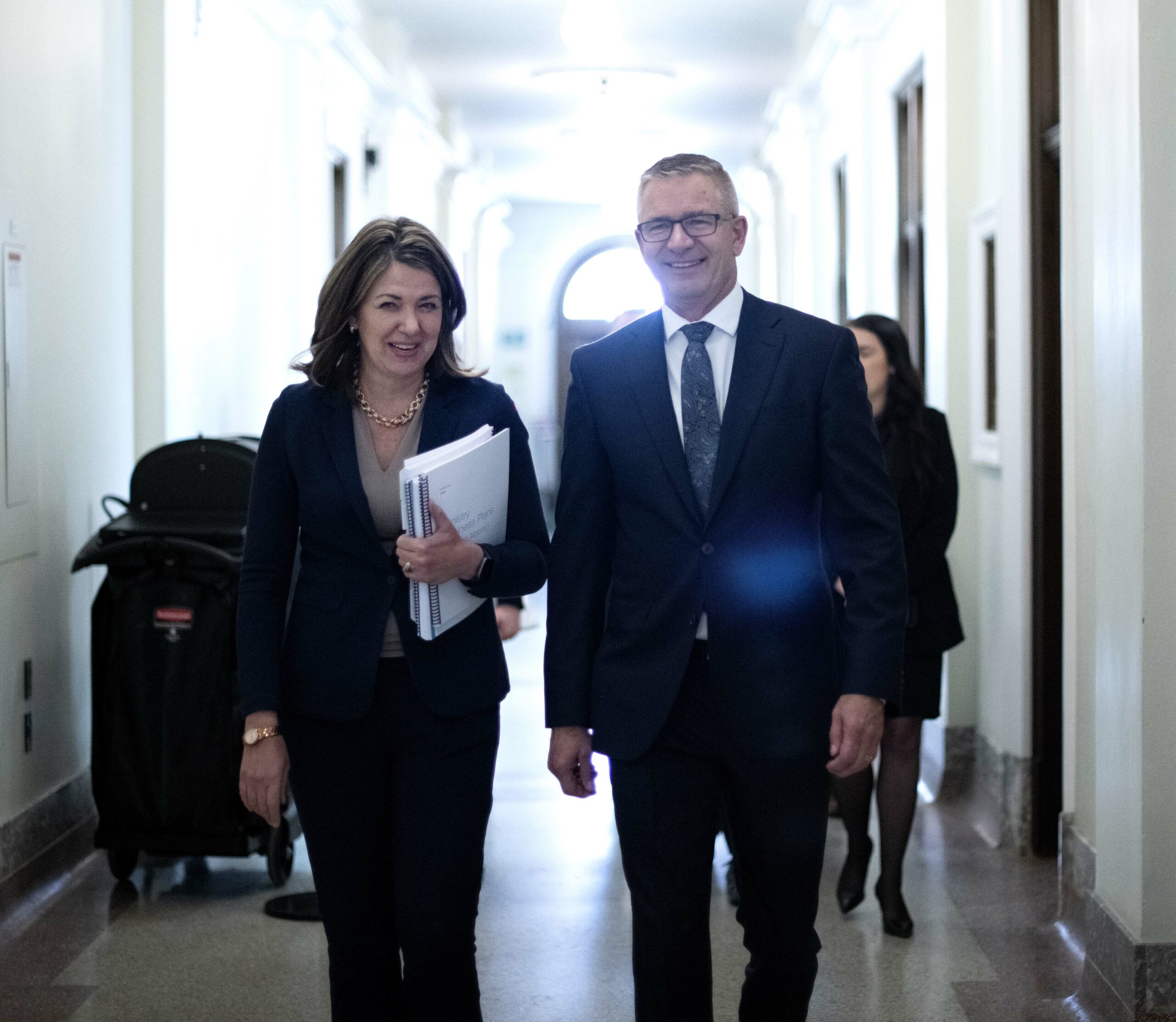The provincial government is projecting a surplus of $2.4 billion in 2023/24.
Budget 2023 will fund health care, education, community safety, job creation, and the growing economy.
“Fiscal responsibility matters. It’s been key to achieving our strong fiscal standing and will be essential for sustainable program delivery in the future. In Budget 2023, we continue our commitment to paying down debt all while continuing to position our economy for growth and invest in the top priorities of Albertans,” President of Treasury Board and Minister of Finance Travis Toews said.
Budget 2023 is expected to advance the province’s investment of another $176 million in 2025/26 to help Albertans build skills, find jobs, and help employers search for workers in their respective sectors.
A $111 million increase over three years is expected to increase enrolment in non-trade construction, energy, technology, and business programs, a government of Alberta press release said.
“Alberta’s government is committed to removing barriers in order to attract highly skilled professionals and job-creating entrepreneurs to Alberta,” the release said.
Investments in aviation, aerospace, agriculture food manufacturing, innovation and technology are expected to enhance economic diversification and attract capital investments.
The provincial government is investing an additional $965 million for health care operating expenses in 2023/24.
The funding will address ambulance response times, decrease emergency room wait times, reduce surgery wait times, and attract front-line health workers, the release said.
Budget 2023 also includes $158 million to attract, recruit, and train doctors and nurses focusing on family physicians in rural areas, $2 billion over three years to modernize the primary health care system, and another $529 million in capital maintenance and renewal funding to keep facilities operational.
In addition to health care supports, the budget is proposing $2.3 billion in affordability measures for Albertans in 2023/24.
Relief measures are expected to help post-secondary students with lower student loan interest rates, tax breaks for adoptive families, and a 10 per cent wage increase for social service workers supporting Albertans with complex needs, experiencing homelessness or family violence.
The provincial government is also increasing education funding by $1.8 billion, which will be allocated to hire education staff, teachers, assistants, bus drivers and school support staff.
Another investment of $59.3 million in 2023/24 will also be used to create more licensed child-care spaces.
Budget 2023 is promoting collaboration between first responders and community partners by increasing access to recovery-oriented mental health and addiction support.
“Budget 2023 secures Alberta’s future by staying true to responsible fiscal management and spending hard-earned tax dollars wisely to support Albertans today and tomorrow,” the release said.
Taxpayer-supported debt will be reduced by $14.8 billion between the 2021/22 and 2023/24 budgets.
The Alberta Heritage Savings Trust Fund will grow by $5.7 billion between 2021/22 and 2025/26, bringing taxpayer-supported debt to $78.3 billion by 2024, and save an estimated $260 million in the fiscal year.
“Mandating balanced budgets and tying operating expense increases to population growth and inflation would help control spending to prevent what could be temporarily high resource revenue being used to increase spending in an unsustainable way,” the release said. “Spending decisions instead would be focused on not only meeting the needs and priorities of Albertans but also on continuing to drive change, innovation and improvement of vital services and programs.”
In 2023/24 the total revenue is estimated to be at $70.7 billion, with corporate income tax revenue estimated at $5.9 billion, and non-renewable resource revenue at $18.4 billion.
Total expenses in 2023/24 are $68.3 billion, $2.6 billion more than what was forecast for 2022/23, with a surplus of $2.4 billion.
In 2022, the real gross domestic product (GDP) increased by nearly five per cent, which reflected the impact of high-interest rates, prices on consumer spending and residential investment, the release said.
In 2023, the GDP is expected to grow by 2.8 per cent.






